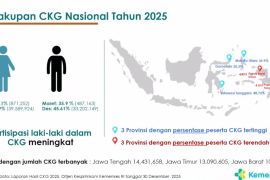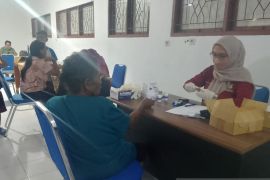In a talk show event on early detection against NCDs, followed online here on Monday, Narisawri stated that early detection against NCDs, especially diabetes and hypertension, can alert a person to the dangers that threaten the body.
Hence, early detection can also prevent effects caused by diseases, such as heart ailments, liver problems, and stroke.
"Do not wait for symptoms. If you know there is a risk, such as being obese or having a family history of diabetes and hypertension, you should do early detection," she emphasized.
According to Narisawri, NCDs are chronic diseases wherein certain symptoms do not appear before the disease takes a serious turn. Thus, if already symptomatic people seek treatment, it becomes increasingly challenging to achieve full recovery.
Nariswari further noted that the prevention of NCDs is part of the Health Transformation Program launched by the Ministry of Health. She assessed that prevention is essential to change people's mindset from curing diseases to preventing diseases.
To this end, she appealed to the community to conduct early detection to prevent the risks of NCDs. Early detection can be conducted at the nearest health facilities, such as integrated health posts (posyandu) and community health centers (puskesmas).
"If we make efforts, there will definitely be results, maybe not now, but this is an investment for the next five to 10 years. Do not be afraid to take precautions, and it must be in our mindset that prevention is much better than cure," she remarked.
Related news: Transforming referral health services to handle rising NCD cases: govt
Related news: Government encourages industry to produce nutritionally balanced food
Translator: Sean Muhamad, Raka Adji
Editor: Azis Kurmala
Copyright © ANTARA 2023












